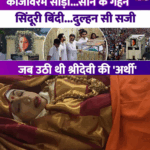Kerala Tragedy: Young Woman’s Suicide Note Fuels “Love Jihad” Debate—Family and Police Pursue Justice

On August 9, 2025, a tragic incident shook Kerala’s Ernakulam district. A 23-year-old woman, Sona Eldos, a Teachers Training Course (TTC) student, died by suicide, leaving behind a note that has sparked intense social and political debate over allegations of forced religious conversion, often referred to in popular discourse as “love jihad.”
The Incident and the Note
Sona’s suicide came just three months after the death of her father, adding further heartbreak to her already grieving family. When police discovered Sona’s suicide note in her room, its contents provided chilling insight into her final days. According to the note, she held her boyfriend, Ramees, and his family directly responsible for her state of mind and subsequent suicide.
In her letter, Sona wrote that Ramees confined her to his house, harassed her routinely, and pressured her to convert to another religion as a precondition for marriage. She revealed that for two months, Ramees and his family repeatedly forced her to attend religious classes and told her marriage was only possible if she agreed to change her faith.
Sona’s family further disclosed that she had sent part of her suicide note to her mother shortly before her death, but her mother did not initially grasp the seriousness of the situation. By the time she reached Sona’s home, it was too late.
Police Action and Legal Proceedings
Police quickly arrested Ramees, who works at Cochin International Airport, on charges of abetment to suicide, rape under false promise of marriage, wrongful confinement, assault, and causing injury. Interrogation is ongoing as investigators seek a fuller picture of the events leading up to Sona’s death.
Growing Demands and Political Fallout
Sona’s family is now demanding a National Investigation Agency (NIA) probe, alleging that her suicide was the result of systematic forced religious conversion. The case has gained widespread attention, with political leaders—particularly from the BJP—labeling the incident as an example of “love jihad” and calling for stricter laws to prevent such cases.
A Sensitive Debate
This tragedy has reignited a sensitive and highly polarized national conversation about interfaith relationships, personal freedom, and the alleged practice of “love jihad.” Some argue that such cases involve real coercion and manipulation, while others warn that framing personal tragedies solely through an ideological lens can obscure individual rights and due process.
Moving Forward: Justice and Reflection Needed
As the police investigation continues and political leaders weigh in, the focus must remain on transparency, a fair judicial process, and support for families affected by such tragedies. Sona Eldos’ story is a heartbreaking reminder of the complex intersections of love, faith, social pressure, and personal agency in contemporary India.
What do you think: should incidents like this be immediately classified as “love jihad,” or is a thorough investigation and nuanced discussion needed? Share your thoughts in the comments.
News
A New Milestone for the Tendulkar Family: Arjun Tendulkar Gets Engaged to Sania Chandok of Mumbai’s Prominent Ghai Business Clan
A New Milestone for the Tendulkar Family: Arjun Tendulkar Gets Engaged to Sania Chandok of Mumbai’s Prominent Ghai Business Clan…
Cloudbursts and Flash Floods Wreak Havoc in Himachal: Rivers Swell, Homes Washed Away
Cloudbursts and Flash Floods Wreak Havoc in Himachal: Rivers Swell, Homes Washed Away Fresh reports from Himachal Pradesh bring grim…
Chaos in Mainpuri: Landlady’s Street Protest Over Shop Dispute Leads to High Drama and Police Action
Chaos in Mainpuri: Landlady’s Street Protest Over Shop Dispute Leads to High Drama and Police Action A dramatic scene played…
Communal Tension in Fatehpur: Congress Leaders Detained as Ancient Tomb vs Temple Row Intensifies
Communal Tension in Fatehpur: Congress Leaders Detained as Ancient Tomb vs Temple Row Intensifies Images and videos of the controversy…
Outrage in Balrampur: Disabled Woman Abducted and Gang-Raped—Police Response Under Fire
Outrage in Balrampur: Disabled Woman Abducted and Gang-Raped—Police Response Under Fire Another shocking crime has put a spotlight on women’s…
Communal Tensions Flare in Fatehpur: Tomb Vandalism, Religious Claims, and Land Dispute Spark Political and Social Storm
Communal Tensions Flare in Fatehpur: Tomb Vandalism, Religious Claims, and Land Dispute Spark Political and Social Storm Tension gripped Fatehpur’s…
End of content
No more pages to load



